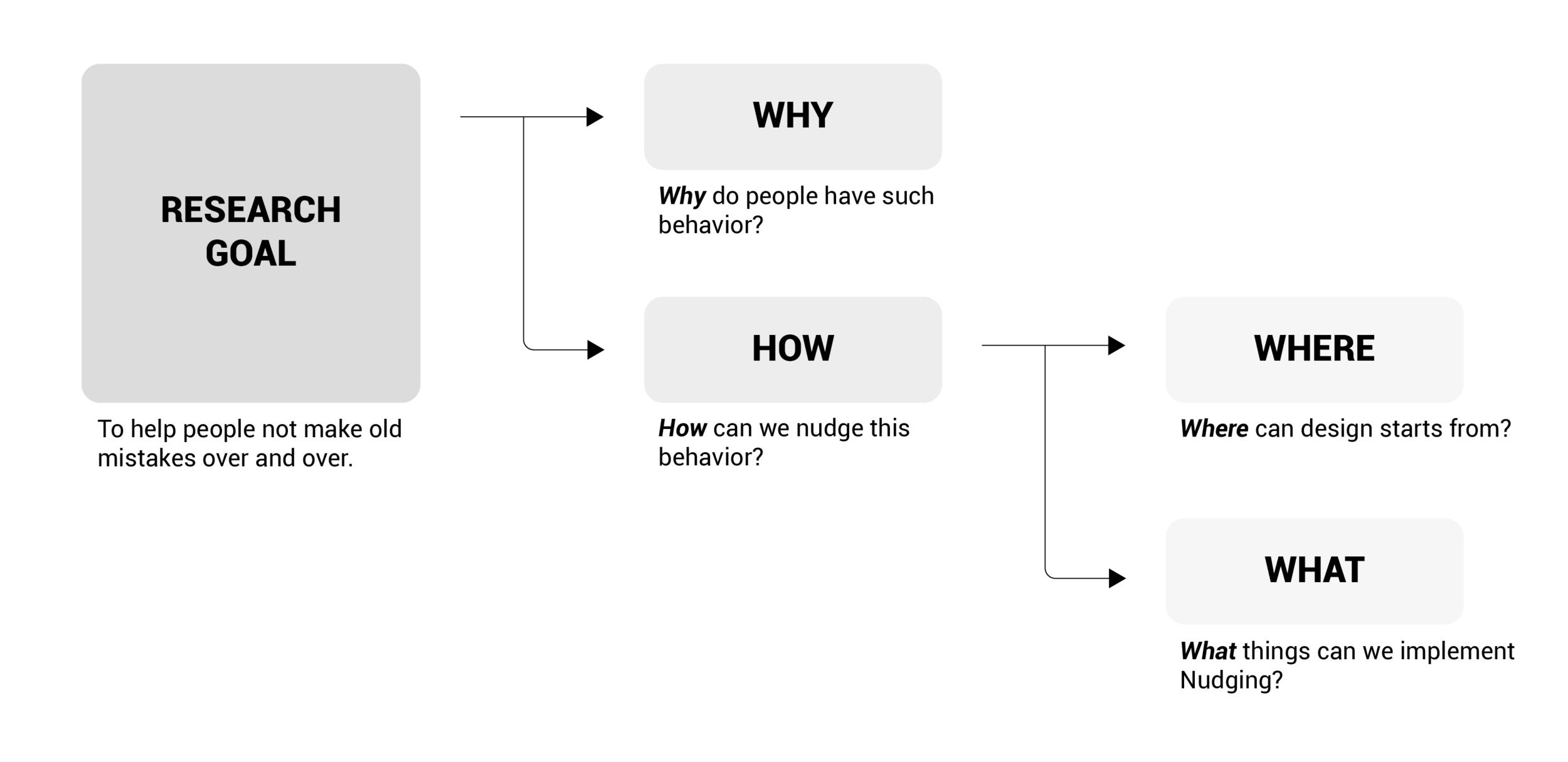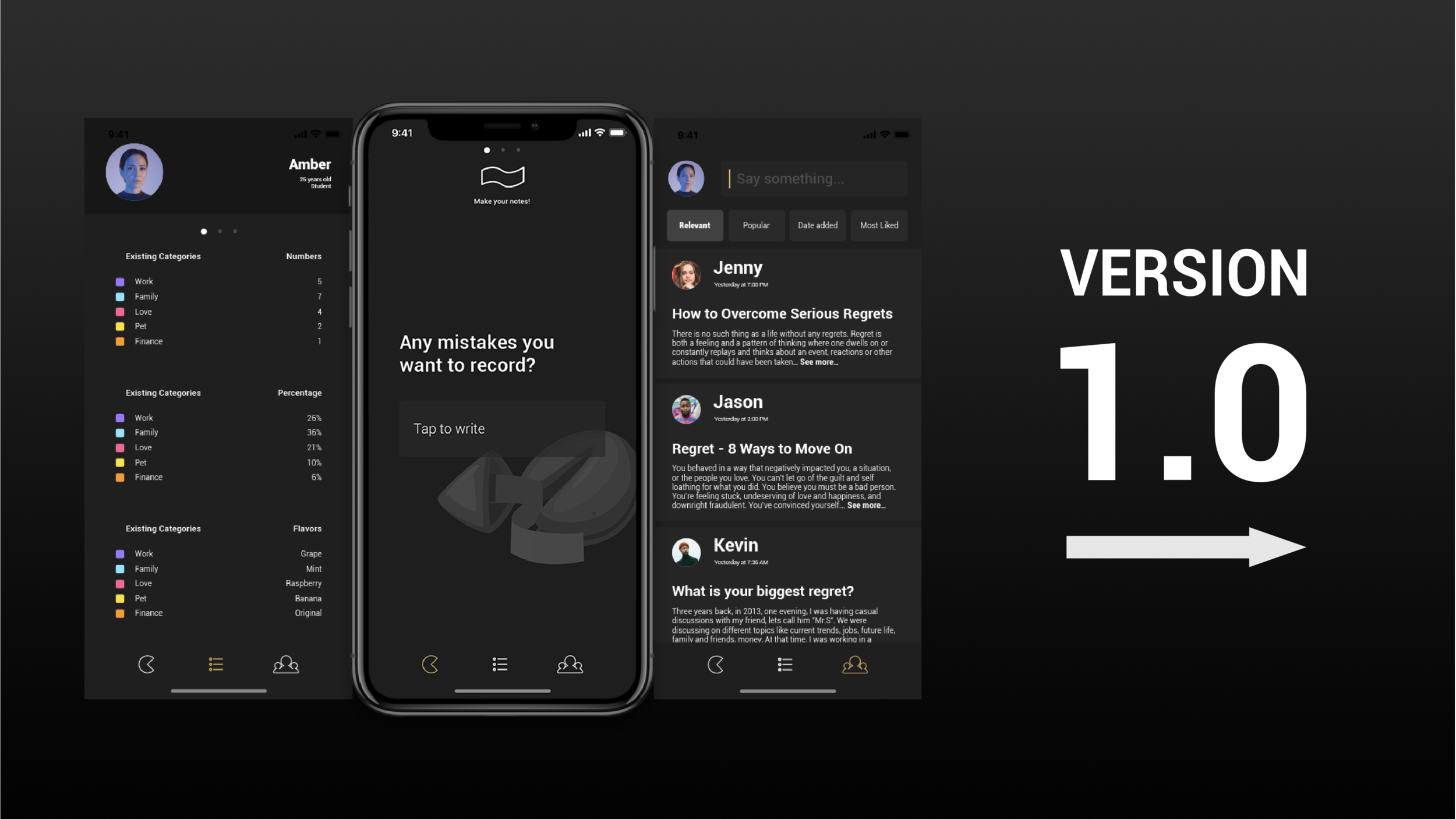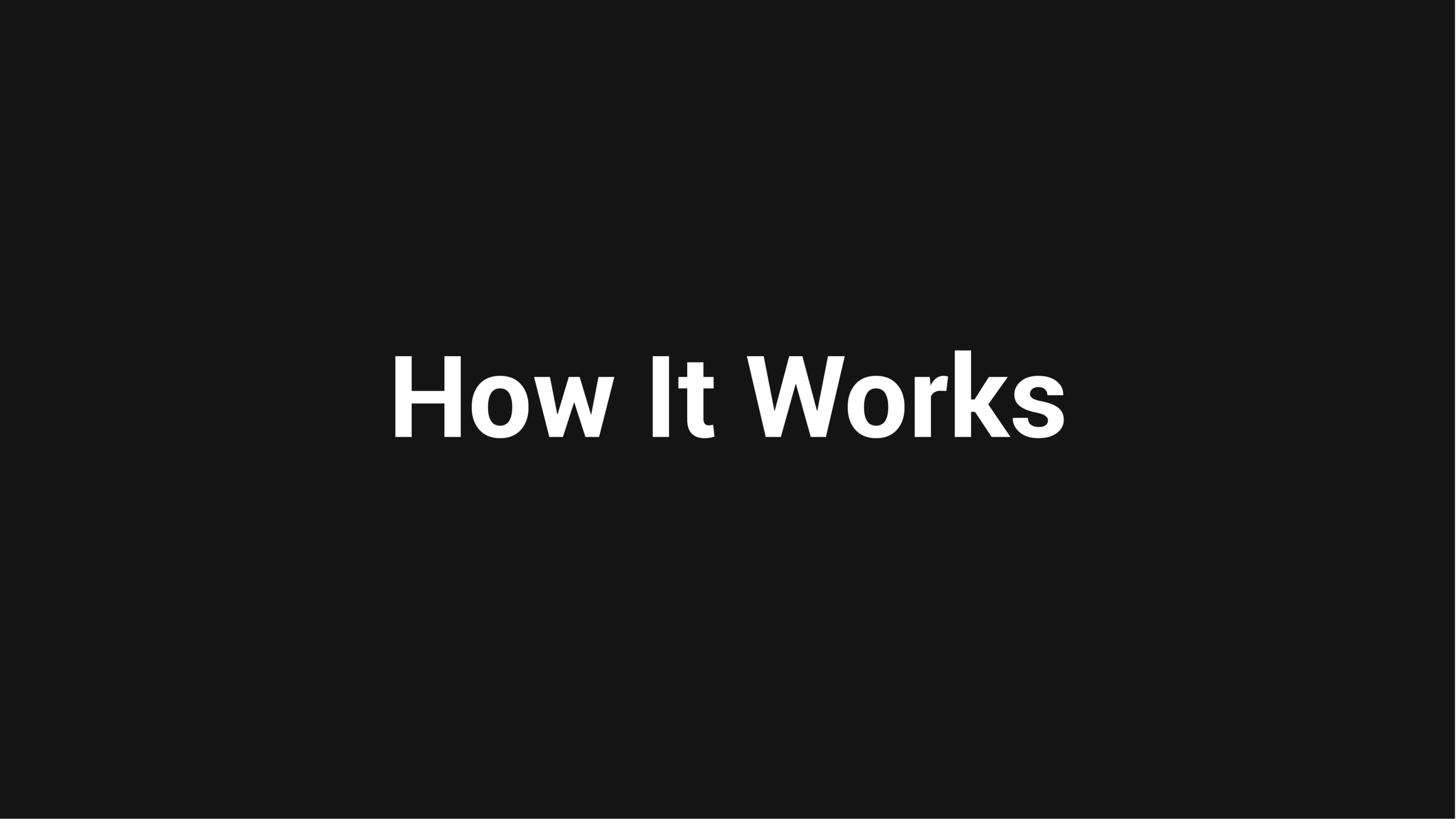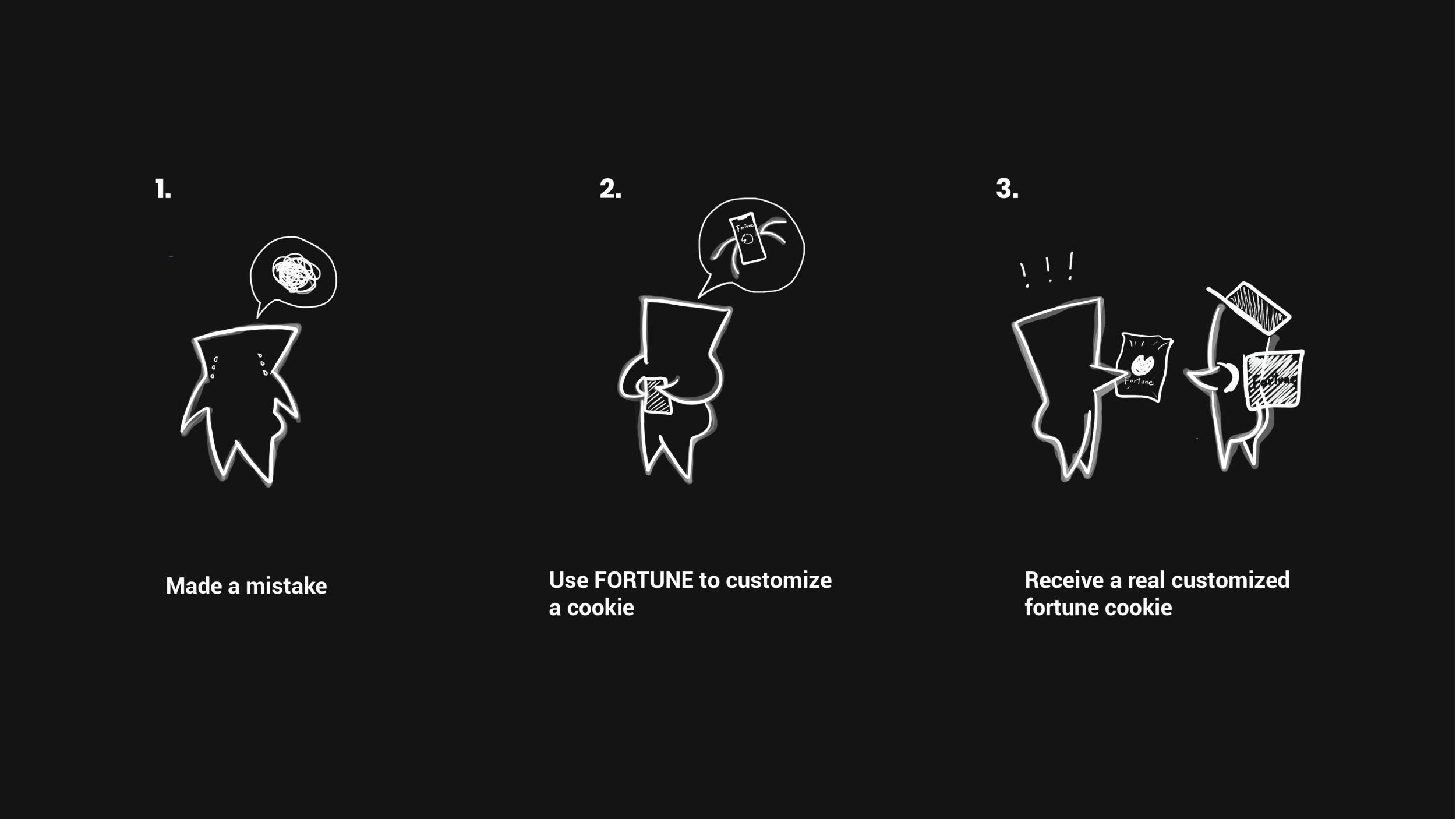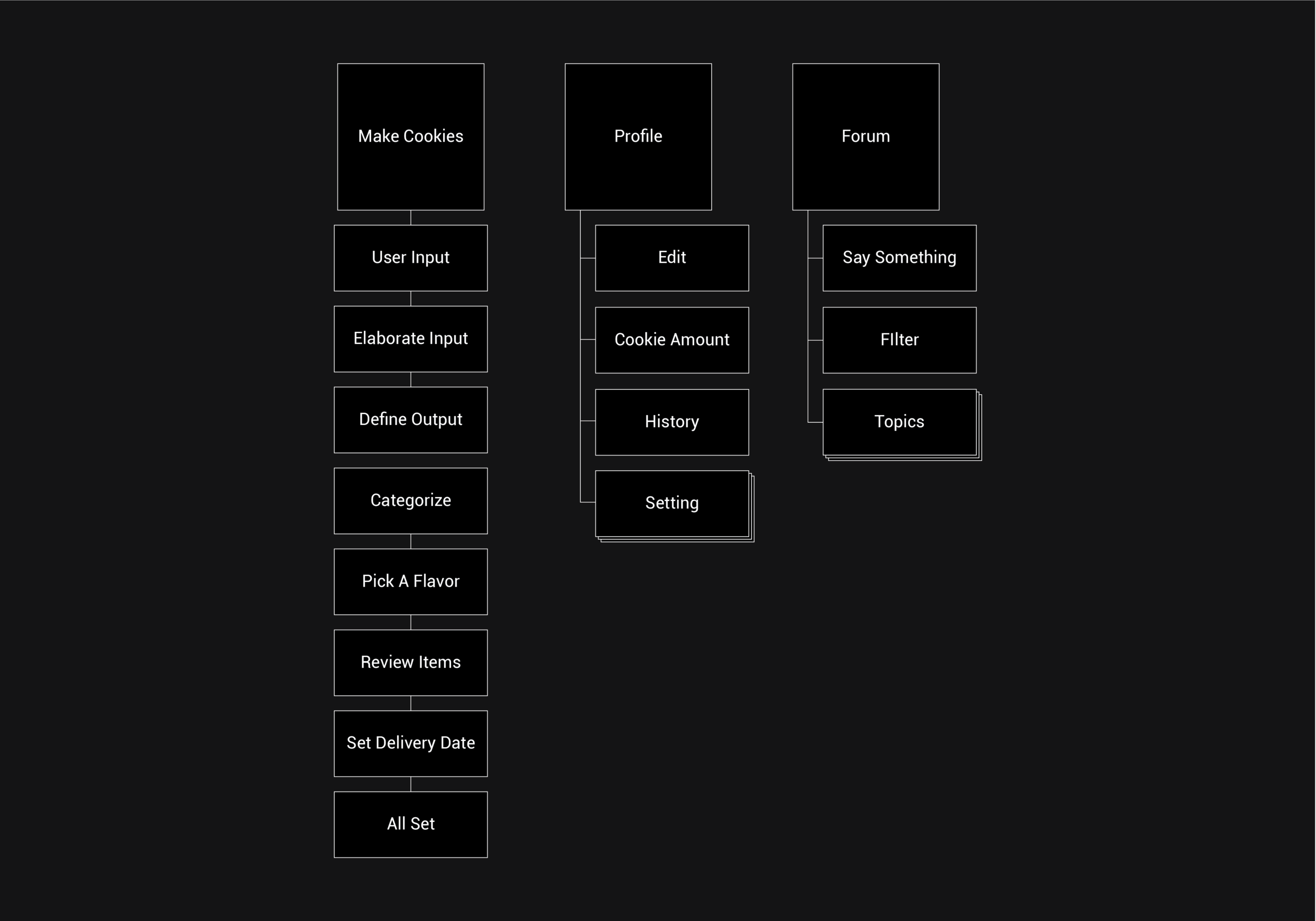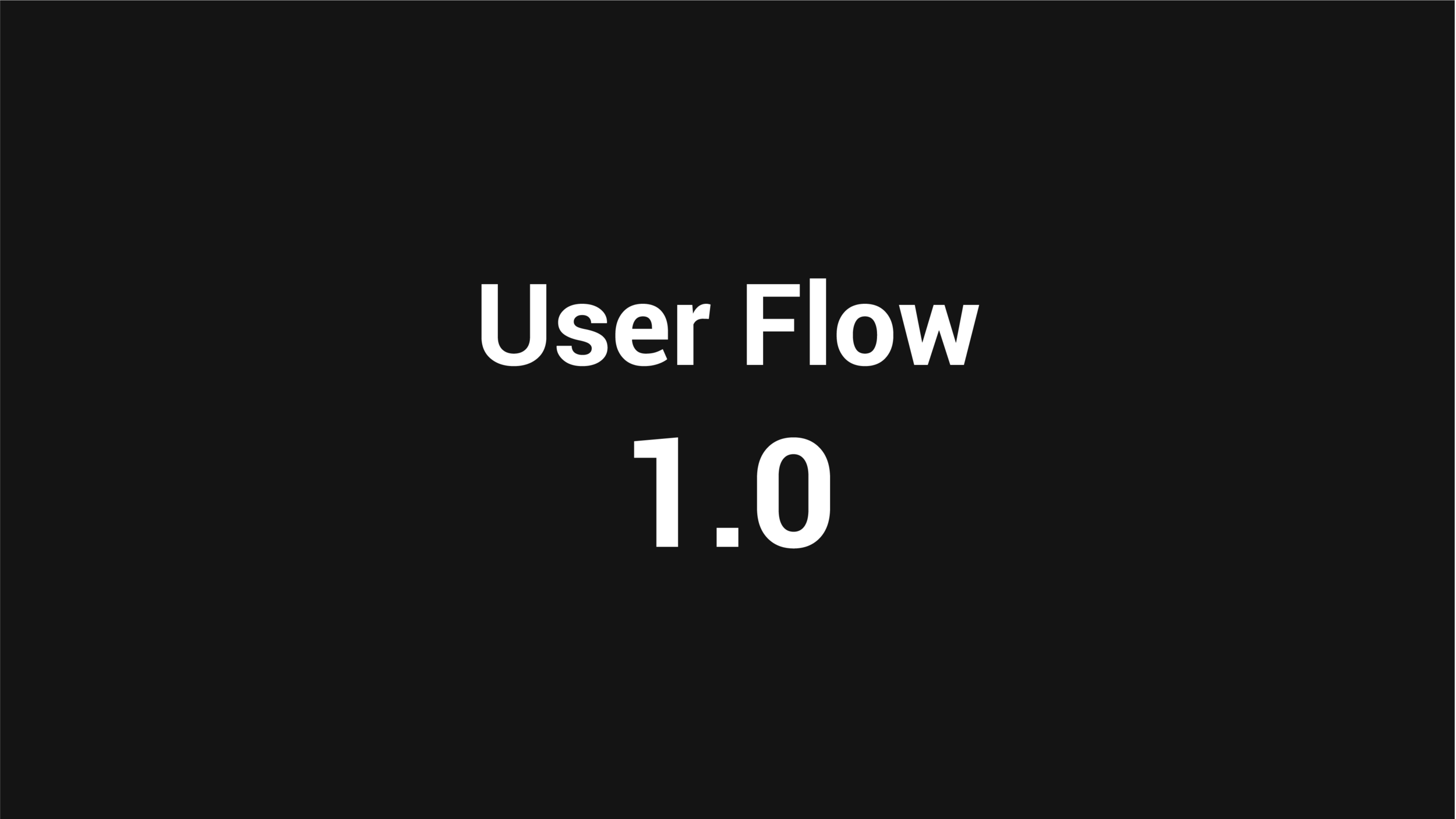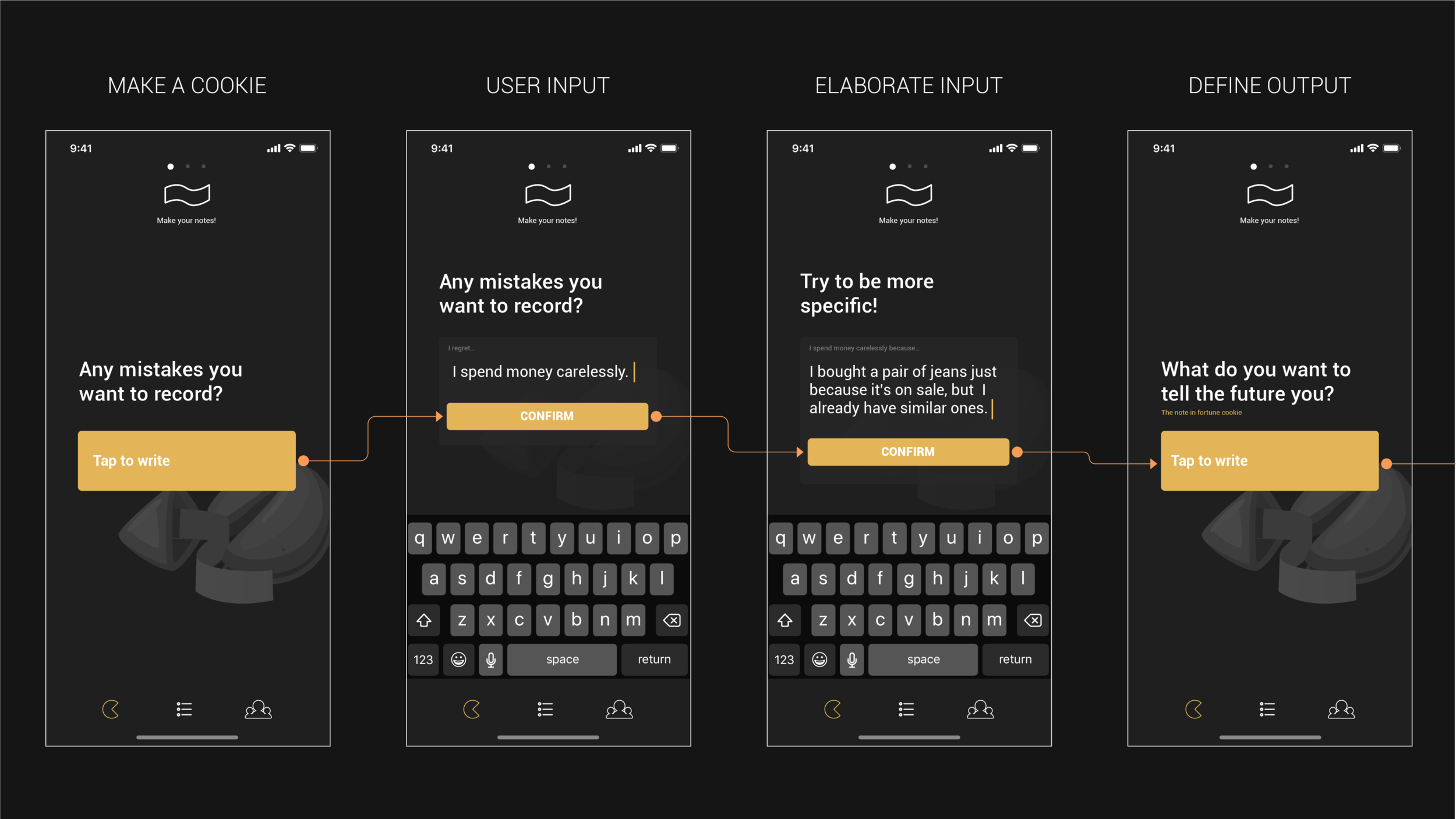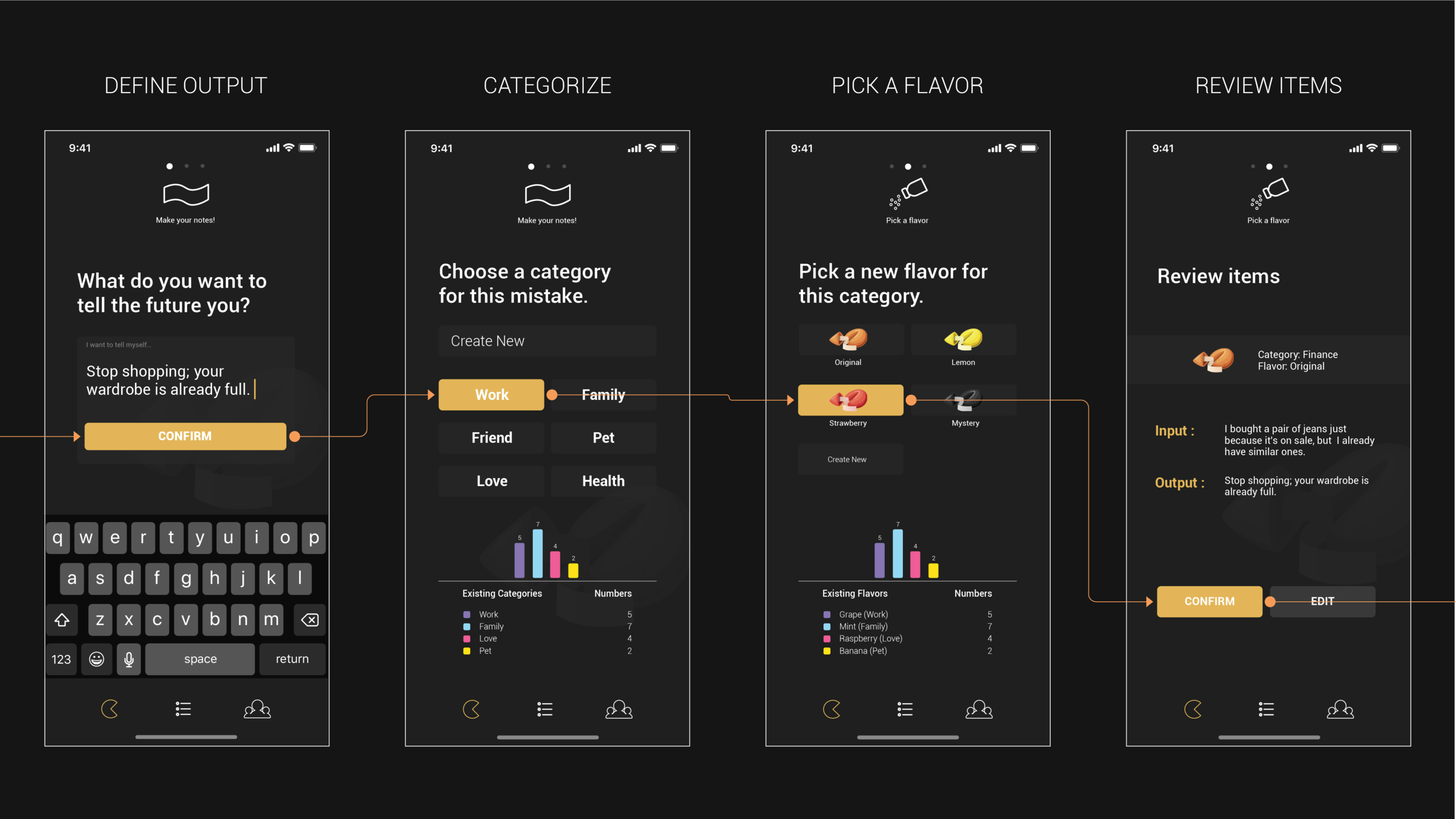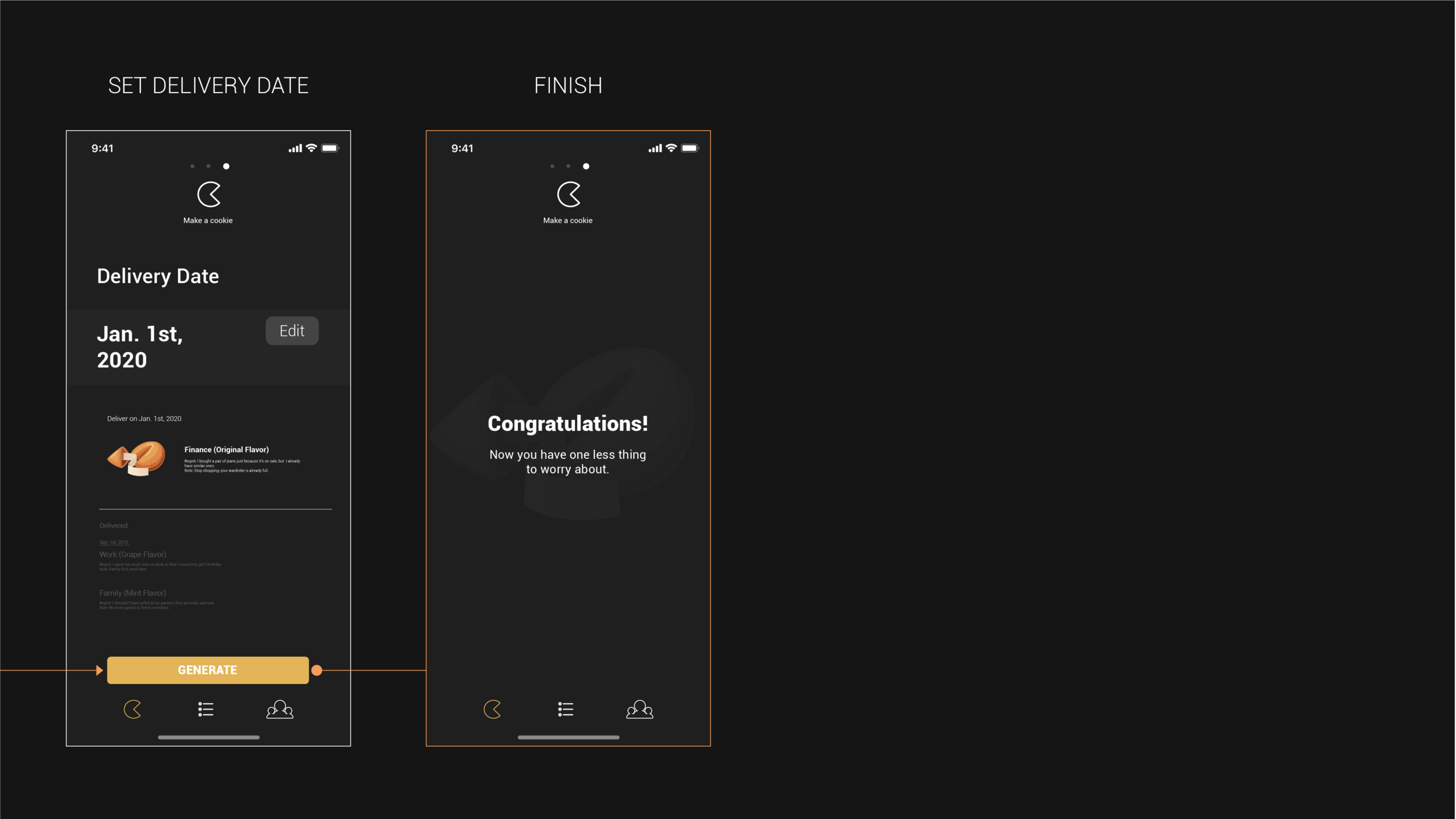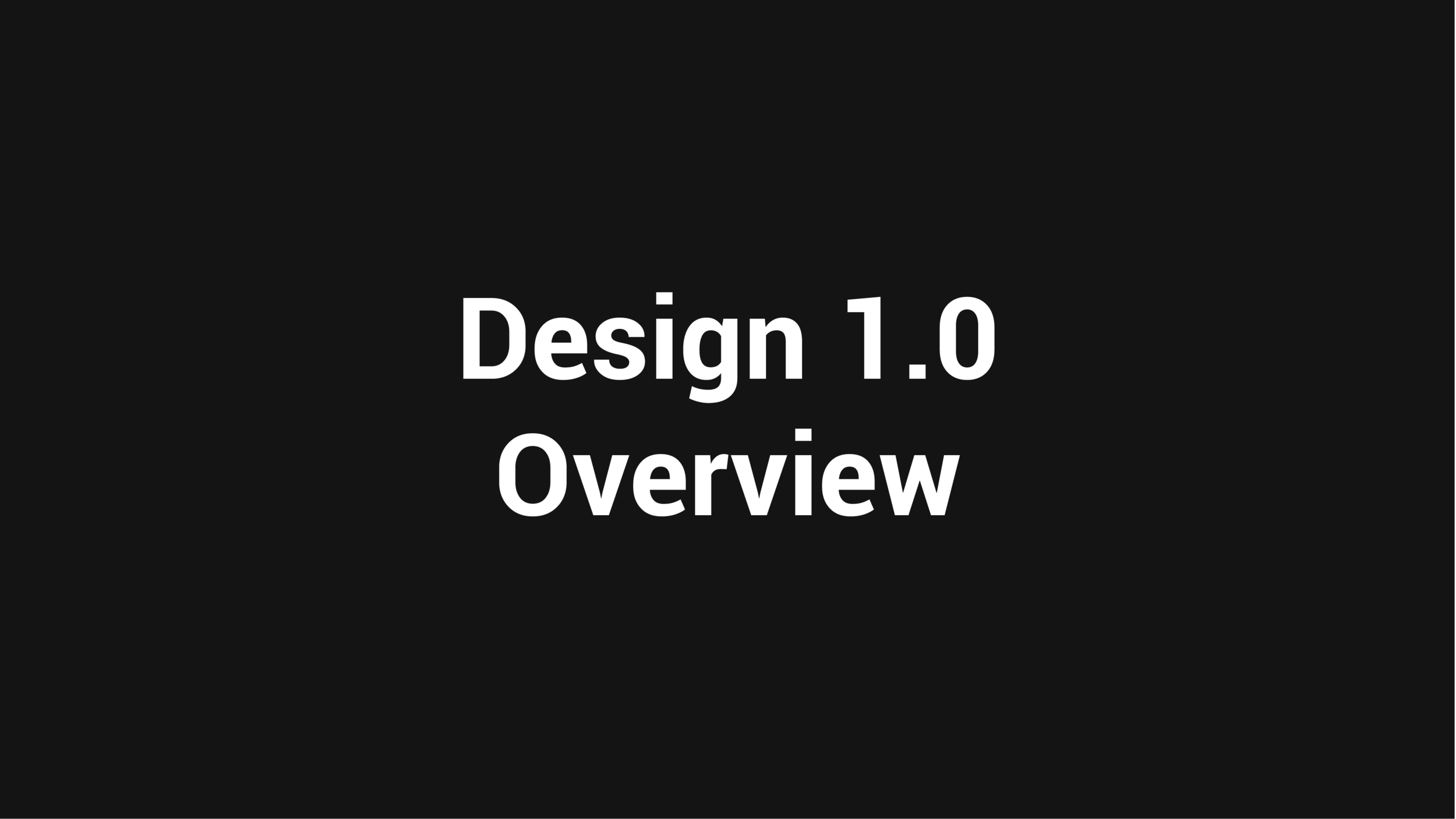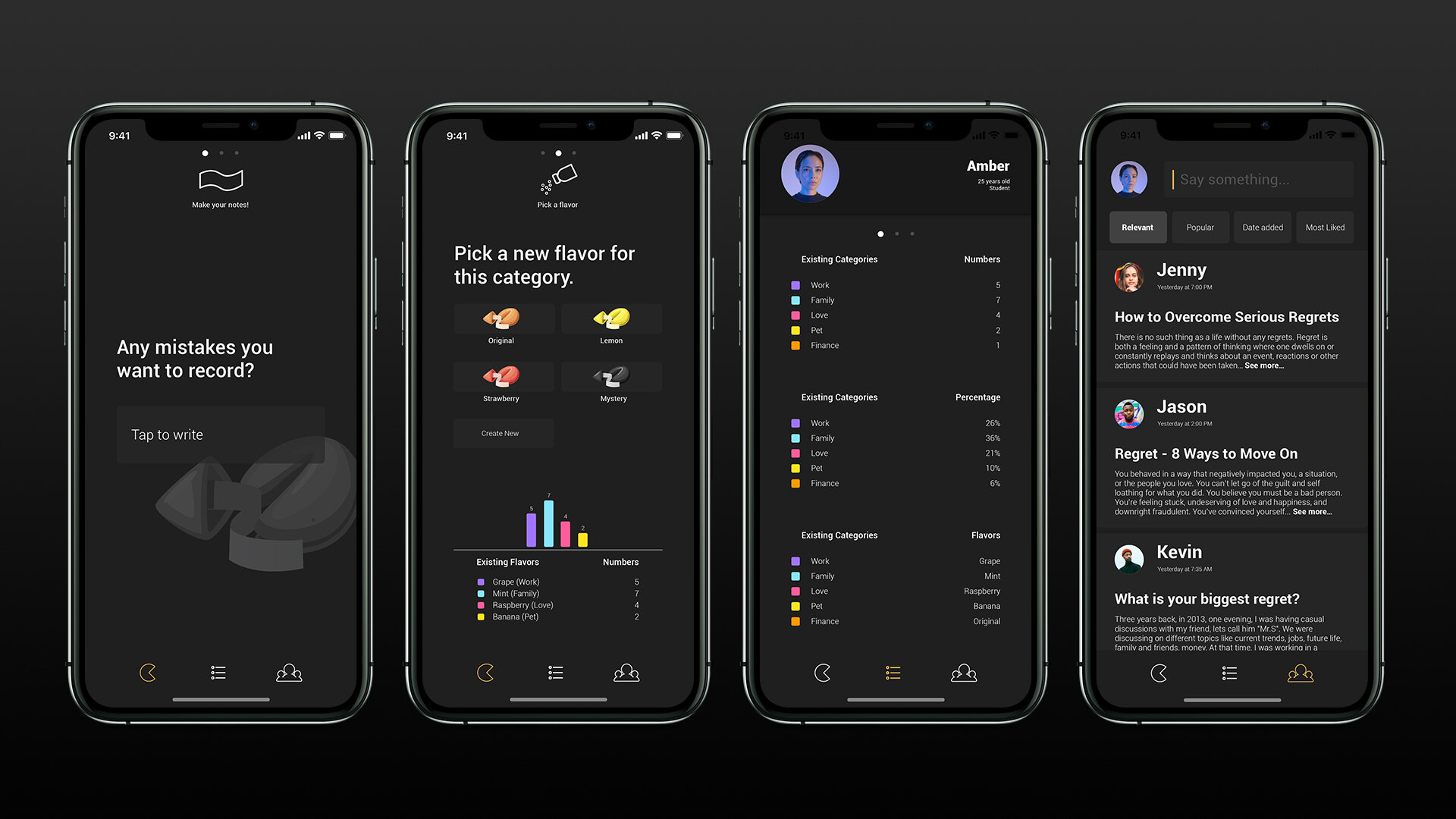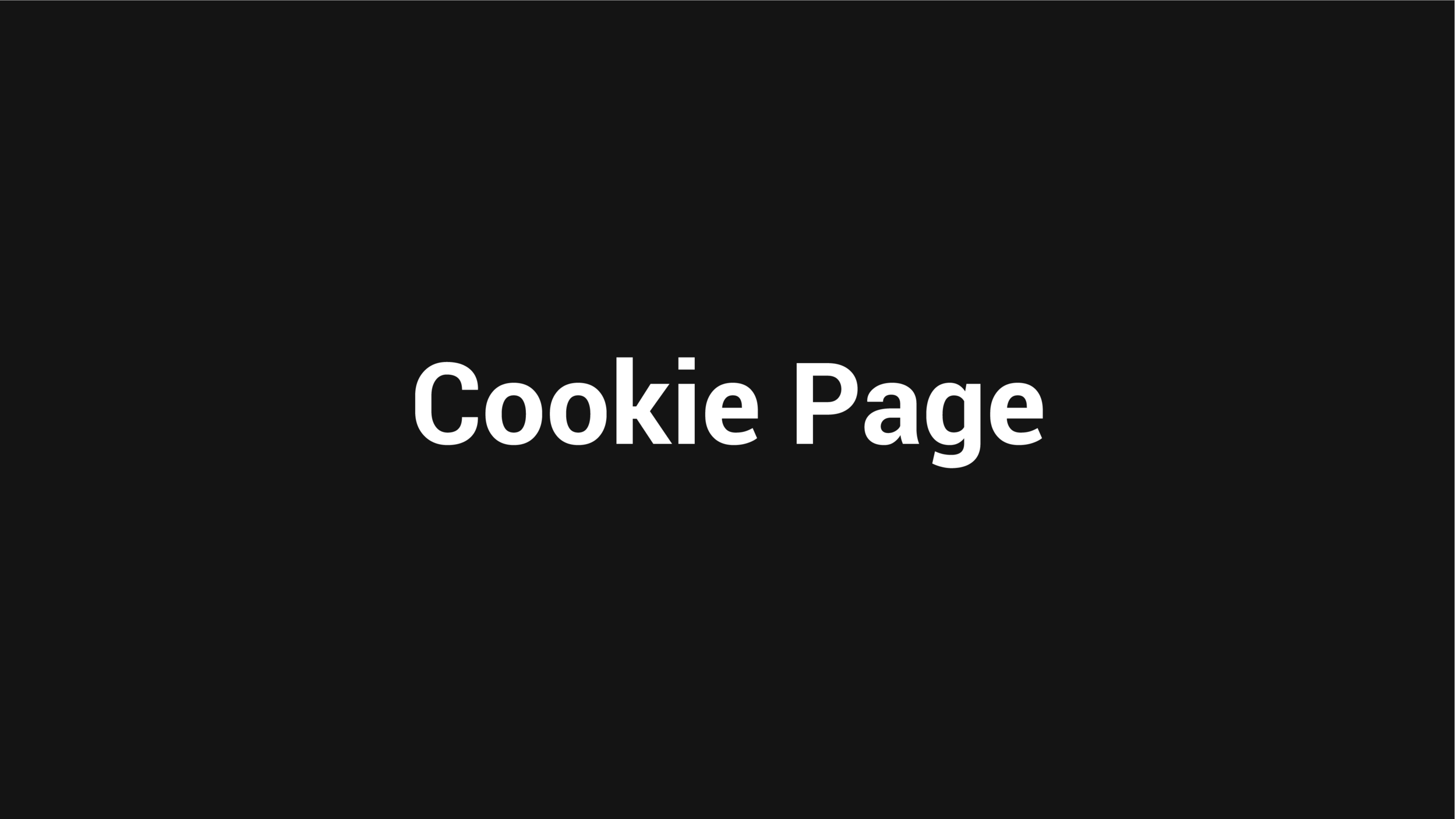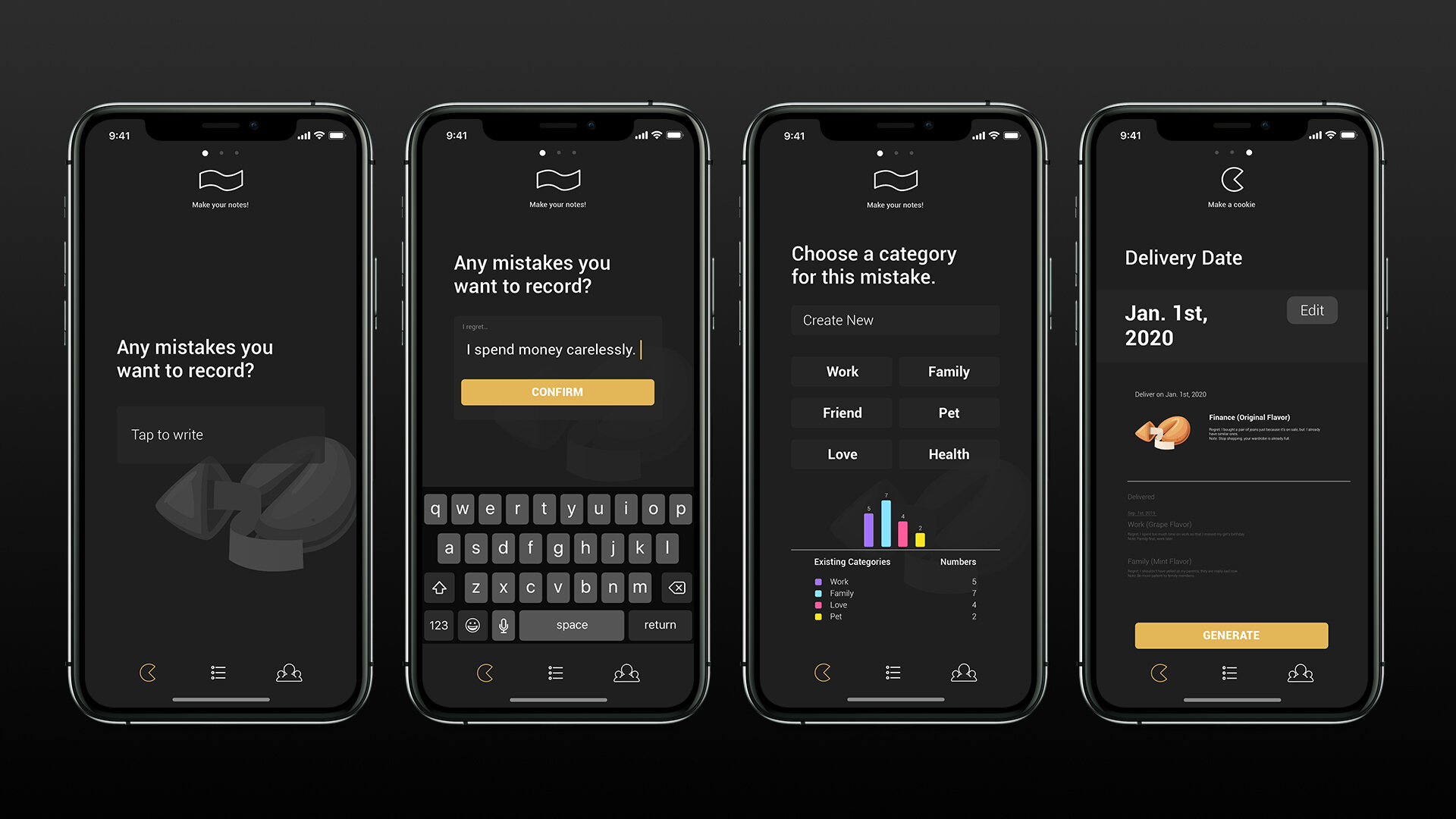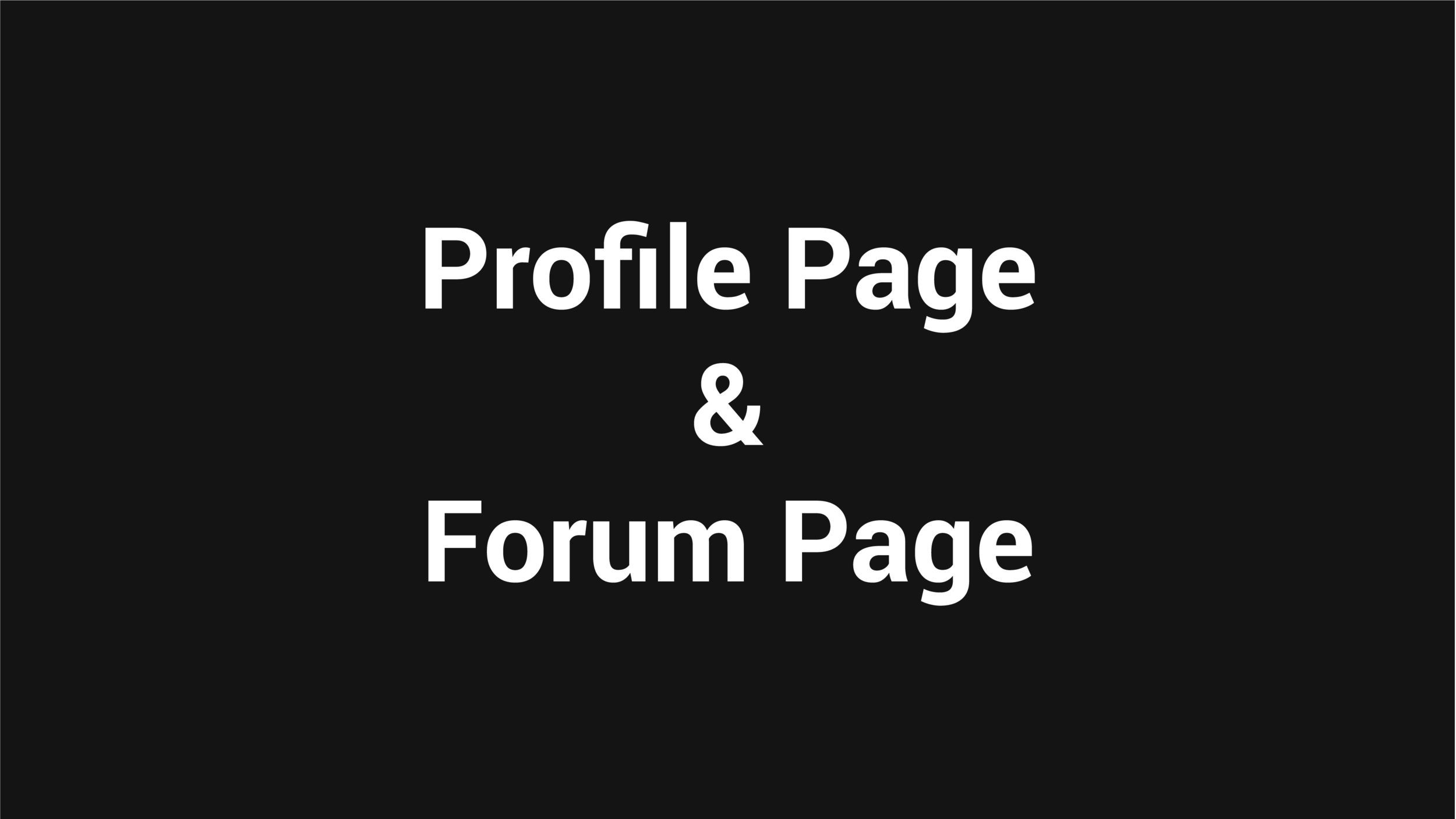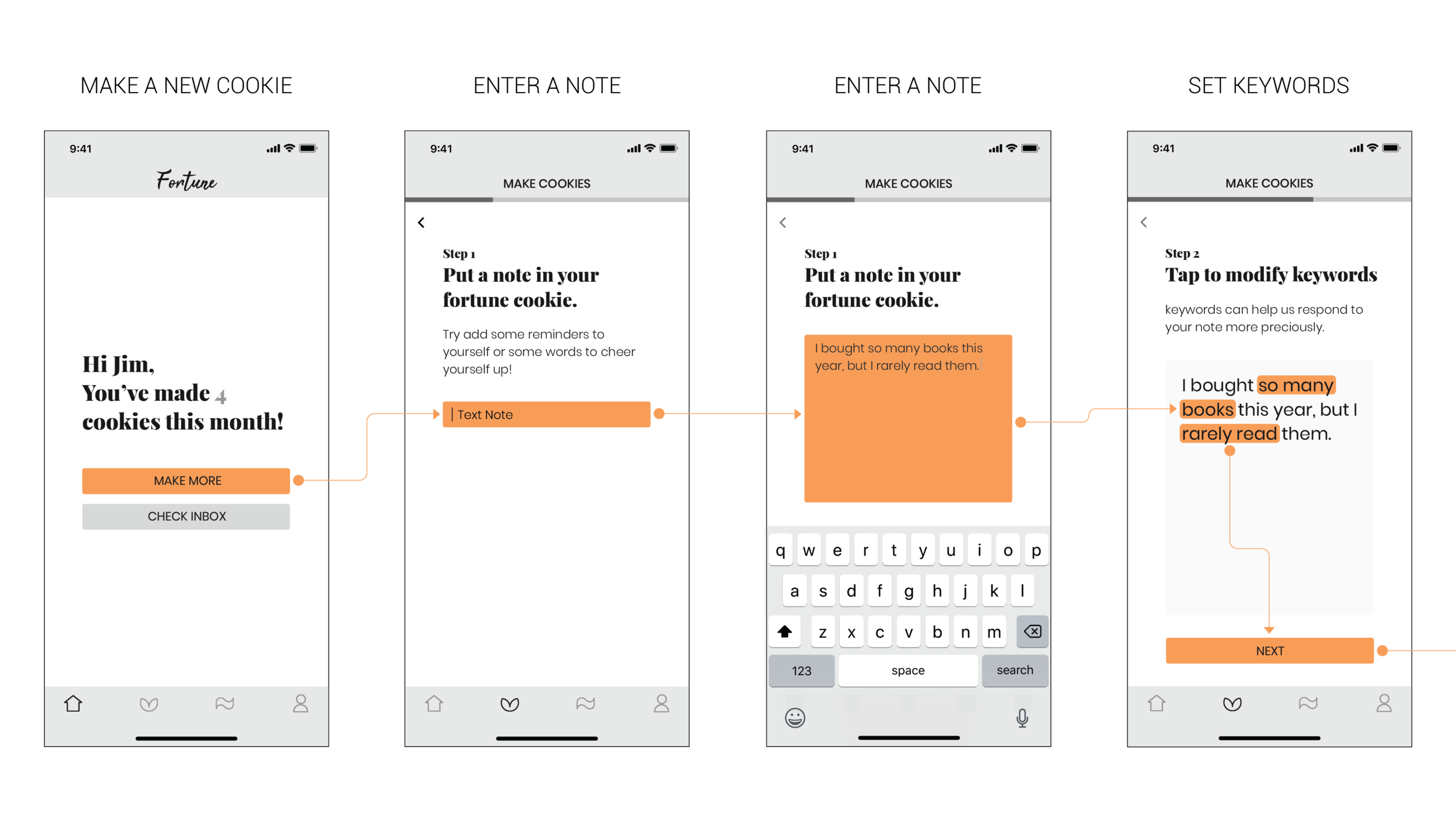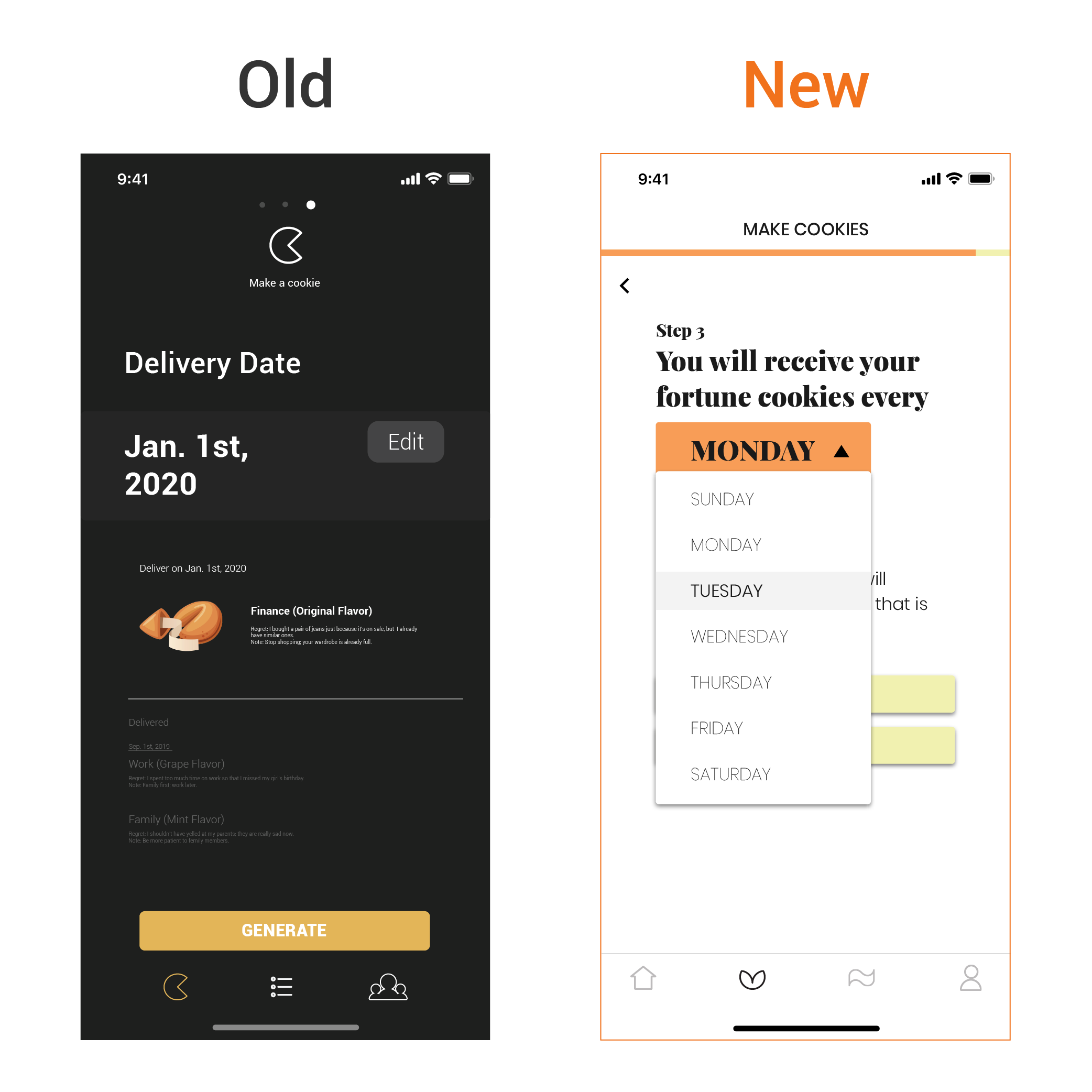FORTUNE
A fortune cookie that helps prevent potential regrets. (Full case study)
Overview
Fortune is an app that sends users unique fortune cookies every week to prevent potential regrets.
Timeline
15 weeks (2019-20)
Categories
Product Design
UX/UI Design
Service Design
Design Research
Role
Product Designer
Tools
Sketch
Adobe Suite
(Ps, Ai, Ae, Xd, Pr)
Cinema 4D
Responsibilities
Problem Definition
Reframing Questions
User Research
Product Design
UX/UI Design
Art Direction
Challenge
Humans make small mistakes over and over, and most of the time we don't put much attention to it. It is the accumulation of the neglect that causes us repetitively behaving in the same patterns, potentially bringing about lifelong regrets.
Opportunity
How might we help users stop making repetitive mistakes in order to prevent potential regrets?
Design Process
Research
Why do people make repetitive mistakes?
According to the book Nudge, people have two systems: The automatic system and the reflective system, and each of them controls our behavior dramatically. The automatic system takes care of most of our behavior for us. It’s unconscious and fast, like feeling thirsty and decide to get a drink. The reflective system is almost exactly the opposite. It’s conscious but slow, like completing a puzzle. In order to not expend unnecessary energy throughout a day, most of the time, we are behaving in the automatic system–doing unconscious things.
Imagine having the same bug in one code; whenever you run the code, that bug will appear. That is why the mistakes we’ve made are quite similar and mostly come from the automatic system.
How might we nudge people’s behavior?
In this case, I think there are two critical elements needed in order to complete the nudging:
To find out WHERE can design start from. (What are the things people love to do in their daily life?)
To find out WHAT content can we nudge. (What are the instructions/rules/statements people would be willing to follow?)
Interview
Believing the answer will be in the overlapping area of these two, I talked to my friends and interviewed a few psychologists, nurses, and sociologists. I asked them what they would do in their daily life, what is the peculiar human behavior they’ve ever observed, and I tried to find out the patterns to piece out the puzzle.
I noticed that people love to use some prediction-related apps, like personality quizzes, daily horoscope, or fortune-telling.
Key Findings
All of the options possess two key elements–people love to use, and people are willing to follow the instructions. Among all, fortune-telling is the one I think design can have the interventions to achieve the goal–helping people stop repeating old mistakes.
Design opportunities
1. USER INPUT : Seize the conscious time
Although most of the time people are making unconscious moves, the very moment people will definitely be in the conscious mode is when people realized that they'd made a mistake. So it would be very helpful to make use of that moment and have people write down the wrong things.
2. DESIGN OUTPUT : Telling a useful fortune
Instead of some random fortune notes, the design output should base on the user inputs and respond accordingly.
Survey Question: “Do You Agree That Repetitive Mistakes Can Lead To Lifelong Regret?”
To find out the target user, I held a street survey, and I asked participants this question :
"Looking back, is there any mistake you constantly make?"
"Do you believe repetitive mistakes can lead to lifelong regrets?"
Only 10% of people over 50 years old think repetitive mistakes can lead to lifelong regrets. (6 male/ 4 female)
About 25% of people under 15 years old think repetitive mistakes can lead to lifelong regrets. (3 male / 4 female)
Almost 84% of people between 23 to 35 years old think repetitive mistakes can lead to lifelong regrets. (8 male/ 5 female).
Reasons are:
People over 50 years old mostly believe that past mistakes are just life lessons; we need to embrace them and keep going.
People under 15 years old think there are not many to worry about...yet.
For people who are between 23 to 35, they think they've made mistakes and they are not satisfied with their work, family, relationship, etc. Mostly everything. And this group of people is exactly in the realm of Millennials.
Persona
user journey map
Market Sizes
Iterations Overview
Design Iteration 1.0
Quick prototype and user Interview
Make A Cookie
Pages Overview
Interviewees’ biggest worry: ”I’m kinda lost in this app.”
To have the most authentic feedback about the product, we didn’t explain much about this app, but we still got some helpful feedbacks:
“The onboarding page looks cool, but I don’t understand why the ball is hitting the cookie, and I wish to see some instructions about the app.”
“The process is quite long; I’m kinda lost in the middle.”
“I wish the steps could be more concise; some of the steps don’t make sense to me.”
“I think it’s too complicated, can it be like Siri and do it for me?”
“It’d be great if it is simpler.”
Design Iteration 2.0
How it works
Comparison
Key changes: Turn real cookies into digital cookies.
Reasons are to reduce unnecessary costs, and digital contents are much easier to review.
Onboarding
comparison
Old
New
Old
The old one is ambiguous. It doesn't contain product information nor highlight core features.
New
The new one is much better. It is clear, simple, and it also elaborates on core features.
Information Architecture
Comparison
Reduce frictions
Removed pages:
Elaborate Input : An unnecessary page; should only be a cue if needed.
Pick a flavor : No more real cookies, thus no flavor is needed.
(Note: In version 1.0, flavors are used for categorizing real cookies, e.g., Lemon flavor is about love, so if I want to see some love-related notes, I will pick the lemon flavor fortune cookie. But in version 2.0, categorization can be done with keywords.)
Set delivery date : The function should be incorporated in a good UI; no need an extra page.
Keep the surprise
Removed pages:
Define output:
(In the old version, notes in the cookie are written by the users themselves, whereas in the new version, the notes are generated by the app.)
Since users more or less remember what they write, which might decrease the surprises when opening up a new fortune cookie, but surprise and curiosity are requisite elements in fortune cookies.
user flow
Wireframes
Wireflow
How to make a new fortune cookie?
Weekly Delivery
Comparison
Key changes 2 : Don't make users think
Selecting could be painful, so let's not make users do. The app will auto-select the keywords; all users need to do is to tap and modify, what a no-brainer.
Key changes 3 : Let the UI do the talking
The old version contains too much information on one page, and I think the way to editing dates is not seamless enough.
The new version only remains the necessary information, and replace the edit button with a triangular dropdown icon, allowing users to operate the app more intuitively and seamlessly.
FORTUNE
An app that turns users' mistakes into fortune cookies that help prevent potential regrets.
Overview
Onboarding
Onboarding pages use cute animations to guide users through the main features in this app.
Make a fortune cookie
Step 1 - 3
Step 4 - 7
Prototype (stay till the end)
Receiving Cookies
There is also a cute animation when receiving new cookies.
Profile & Keyword Links
In the profile page, if users wonder what notes they've received on a specific day, users can click on the dots in the chart to review directly, and the same function works on the keywords as well.
Settings
Key functions
If users don't want to constantly make cookies but still want to receive new fortune notes, that is totally fine. In the setting page, users can decide if they want the app to auto-generate notes for them or use old inputs repeatedly.
Magic Words
The Magic words function is like "Ok, Google" or "Hey, Siri". But what's more exciting than that, you can customize your trigger words! Magic Words can help users record more detail moments that people weren't aware of. For example, If a person always says "Oh shit " whenever he/she did some stupid things, then "Oh shit" could be the magic word to trigger the app, and help him/her record the stupid moment that he/she didn't even notice.






